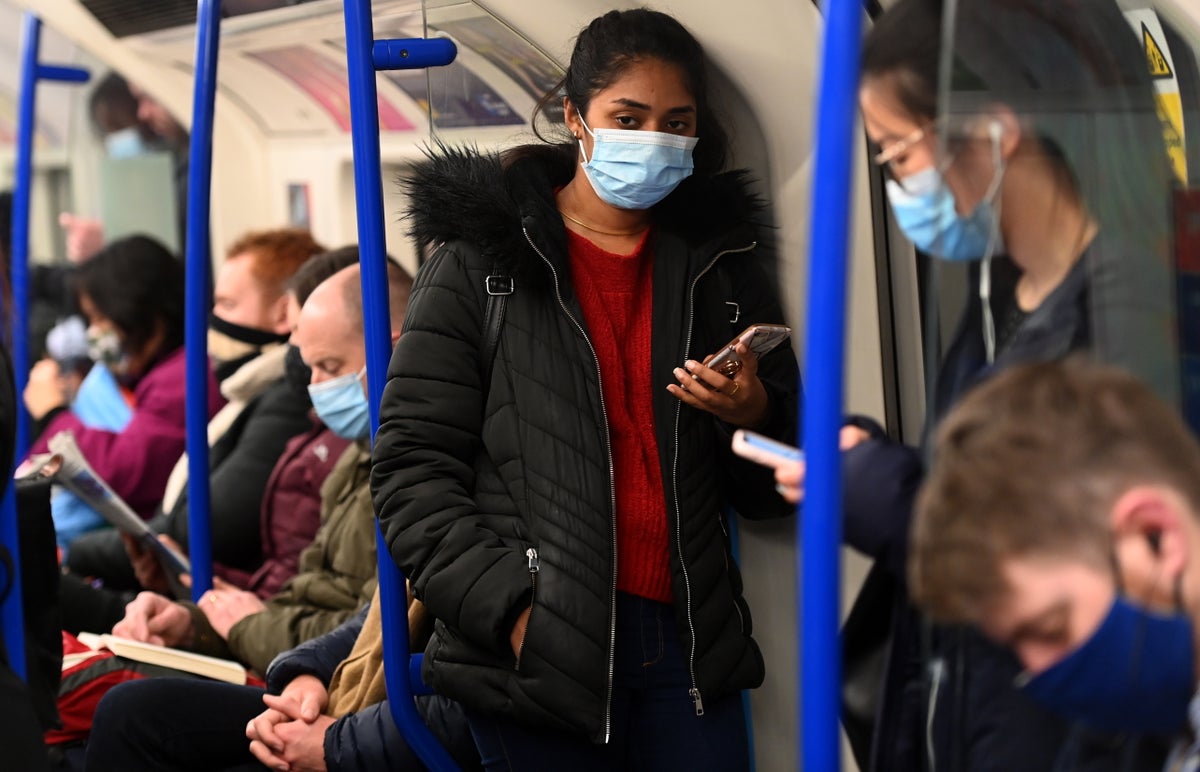
Boris Johnson ended the UK government’s “Plan B” social restrictions for dealing with the Omicron variant of the coronavirus in England on 24 February 2022, apparently drawing a line under the lockdown era once and for all.
Trailing the decision in the House of Commons in January, the prime minister said that working from home orders, guidance on mask-wearing in public places and presenting NHS Covid passes to enter crowded venues were all to be scrapped as the New Year rise in infections waned without resulting in the wave of mass hospitalisations feared by experts.
Life has largely returned to normal interim, with the national focus switched to Partygate, the war in Ukraine and the cost of living crisis.
However, a rise in UK hospital admissions for patients with Covid-19 this month has prompted experts to warn that Britain is in the midst of a fifth wave of coronavirus infections, now being driven by the BA.4 and BA.5 sub-variants of Omicron.
The country saw a 43 per cent spike in cases at the beginning of June, seemingly caused by people coming together to celebrate the Queen’s Platinum Jubilee over the course of a four-day weekend.
The latest figures show 1.7 million people testing positive across the UK, a 23 per cent increase week-on-week (w-o-w).
Even more worryingly, hospitalisations have increased 31 per cent w-o-w, climbing at a higher rate than the last Omicron revival back in March.
Healthcare chiefs have warned a new outbreak will have a significant impact on an NHS “already on its knees” and expressed concern over the return of major live events like Glastonbury, Notting Hill Carnival and the Edinburgh Festival, which could become super-spreader sites if precautions are not taken.
Depending on how the situation develops from here, new measures could eventually become necessary to rein in transmission, perhaps the return of face masks and social distancing in public spaces or even the rollout of second vaccine booster jabs.
For now though, the rule on face coverings remains that they are not officially required in places and a matter of individual choice.
That said, they are clearly advisable if you are in a crowded indoor space or on public transport given the current high rate of tranmission – and especially so if you have a prior health condition.
If you believe you have symptoms associated with the coronavirus, the current NHS advice is to take a lateral flow test and isolate at home for five days if you test positive to avoid passing it on to others (you should keep away from anyone likely to be particularly vulnerable because of their age or a pre-existing condition for 10 days).
If you do have to go out in public when you are unwell, you are encouraged to wear a mask, avoid crowded indoor spaces and wash your hands for at least 20 seconds.
If you are concerned about your symptoms or believe they are getting worse, you are advised to visit 111.nhs.uk, call 111 or call your local GP surgery.







